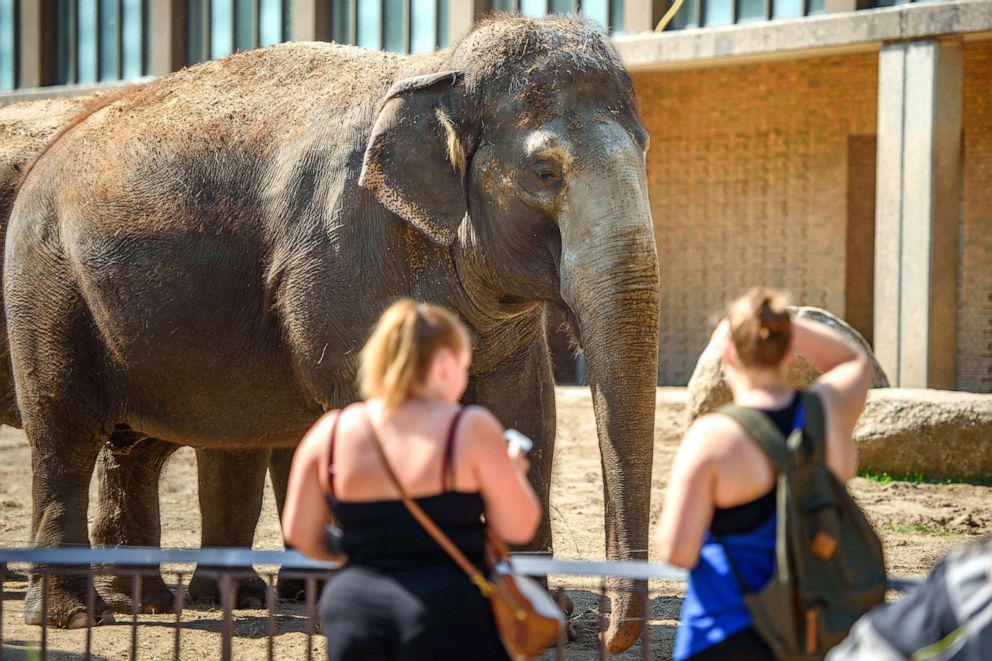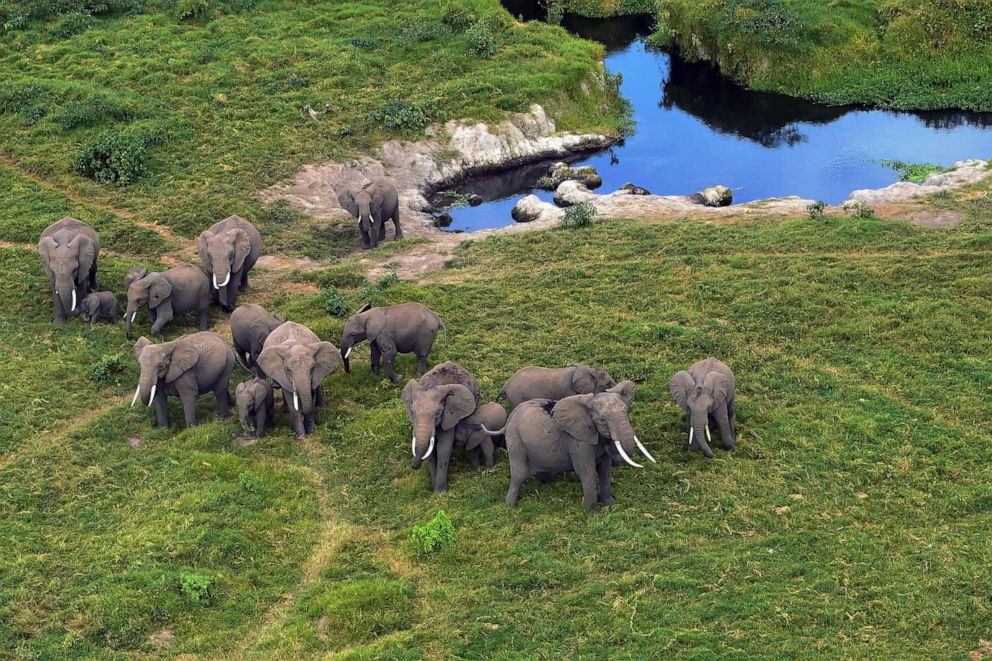CITES stops short of outright ban on zoo trade in wild African elephants
Hundreds of African elephants have been taken from the wild and shipped to zoos.
LONDON -- An international conference on wildlife trade has agreed to impose a near-total ban on snatching African elephants from the wild to send them to zoos and other captive facilities around the world.
Following days of contentious debate in Geneva, a majority of the member nations to the Convention on International Trade in Endangered Species (CITES) on Tuesday approved the new restrictions, which stop short of completely barring the trade in African elephants captured in their habitats.
The United States voted against it, as did Zimbabwe, a top exporter of wild African elephants to overseas zoos.
The European Union, with its 28-strong voting bloc, initially opposed it, but reversed course after the primatologist Jane Goodall and others registered protests. The EU countries agreed to support the measure only after it was amended to allow the trade in "exceptional circumstances" where their transfer will result in "conservation benefits for African elephants."
“This is a momentous CITES decision for Africa’s elephants and despite compromised language being introduced by the EU, we are relieved by its passing," Audrey Delsink, the Africa wildlife director at Humane Society International, said in a statement. "While it is disappointing that it is not an outright ban on trade in live elephants, the new language adds vital independent oversight and scrutiny."

The African elephant is currently listed as vulnerable on the International Union for Conservation of Nature (IUCN) Red List of Threatened Species. Final results from the Great Elephant Census, the first-ever pan-African survey of savanna elephants, revealed a decline of 30 percent in populations between 2007 and 2014. A total of 352,271 African savanna elephants were counted in the 18 countries surveyed.
CITES, which regulates global trade in over 35,000 species of plants and animals, currently allows wild elephants in Botswana and Zimbabwe to be exported to "appropriate and acceptable" destinations.
Under this definition, hundreds of elephants, predominantly young ones, have been taken from their families and herds in southern Africa to be shipped to zoos, circuses and other captive facilities across the globe, mainly in China. A 2008 study found that African elephants live an average of 56 years in the wild compared to just 17 years in European zoos.
"The export of live, wild-caught elephants for exploitation in zoos and other captive facilities does nothing for conservation or elephant management," Mark Jones, head of policy at The Born Free Foundation, a wildlife charity, said in a statement. "Instead it causes immense suffering among both the individual captured elephants, and the herds from which they have been taken."

An initial vote last week at the start of the 12-day CITES meeting saw 46 countries vote to adopt changes to the rules that would essentially end the controversial trade, limiting exports of wild elephants from Botswana, Namibia, South Africa and Zimbabwe to local conservation programs or secure areas in the wild "within the species' natural range, except in the case of temporary transfers in emergency situations." Eighteen countries voted against the move.
The discussion was reopened this week, with the European Union voicing its objections. That prompted an outcry from an array of public figures, including Jane Goodall, Ricky Gervais and Pamela Anderson, who joined animal conservation organizations in sending an open letter to E.U. leaders.
Ultimately, the European Union flipped its position after revisions to the language adopted by CITES added a loophole, stating that pachyderms should remain in their "natural and historic range in Africa, except in exceptional circumstances where ... it is considered that a transfer to ex-situ locations will provide demonstrable in-situ conservation benefits for African elephants," and only if approved by the CITES animals committee in consultation with the IUCN elephant specialist group. The amended text was passed by a two-thirds majority vote, with 87 nations in favor, 29 opposing and 25 abstaining.
"This will, in effect, stop the trade of live, wild caught elephants to international locations," the David Shepherd Wildlife Foundation, a wildlife charity, said in a statement. "This historic decision is a huge win for elephants."




